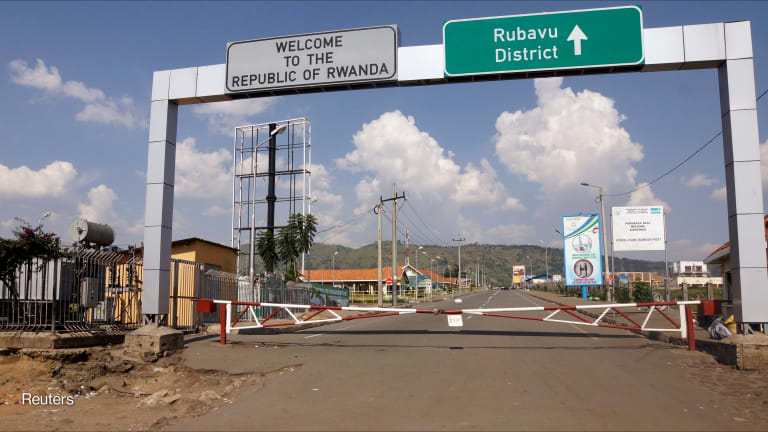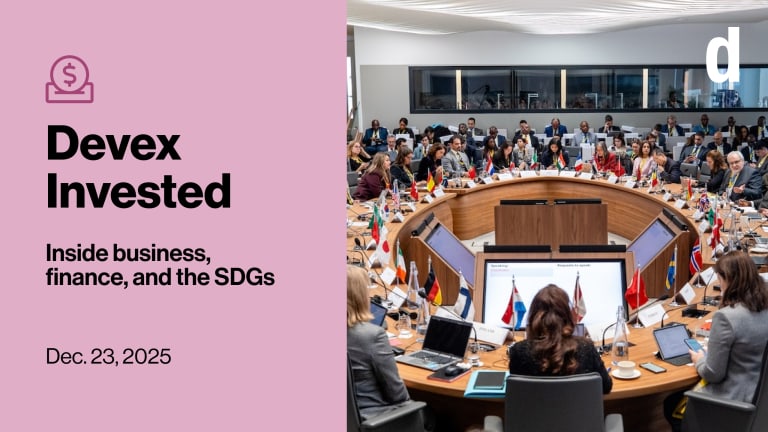
The World Trade Organization’s landmark Trade Facilitation Agreement is ready to be finally signed in the next few months, paving the way for better trade and access to markets for developing nations — but getting the two-thirds majority needed to implement the consensus may prove challenging.
After nine years of intense negotiations, the deal was decided as part a wider package approved in December in Bali, where representatives of WTO member states agreed to meet universal standards for customs procedures to facilitate the movement of goods across borders. Developing countries pushed for industrialized nations to commit to funding for capacity building and technical assistance so money for those projects would not be diverted from other pressing issues.
The Bali agreement shows promise, but is not without its challenges, Paul Delaney, a partner at the business and political consulting firm Kyle House Group, said during the U.S. Chamber of Commerce’s Global Supply Chain Summit on Thursday.
Perhaps chief among these obstacles is obtaining the two-thirds majority necessary to force the agreement into effect, which will certainly take time, he pointed out. The challenge in Geneva — where WTO is based — is largely political, and countries with other priorities may use ratification as a bargaining chip and refuse to sign unless other needs are met.
However, some of the “actors who cause trouble” could stand to benefit significantly, and in particular China is pushing for the agreement, so Delaney is optimistic.
In addition, clear coordination effort among donor agencies, business and the developing countries will be critical. One way to streamline that process, he suggested, would be to leverage existing regional entities to get their members to work together.
“The worst-case scenario is going to be sort of random donor funding support commitments in the wrong order and not in the best way that works for where they are,” added the expert.
Delaney described this as a “transformational opportunity” because of the potential for small businesses to be part of supply chains in new ways and the promise of e-commerce to find markets for many African goods. Some existing policies are preventing whole countries from truly engaging in the global economy, he said.
Best way to improve supply chains
A recent World Bank report on supply chain logistics performance found a persistent gap in trade logistics between rich and poor countries, and asserted that customs was a primary factor holding back the lowest-performing countries.
“Few measures have the same potential for stimulating economic development as trade facilitation,” the report said, citing the need for comprehensive reforms to help countries move products to market and reduce trade costs.
Many companies — especially those heavily involved in shipping, importing and exporting— support the agreement. For logistics behemoth DHL, which operates in more than 200 countries, the deal would not only make their business more efficient, the economic development benefits and growth would also lead to more customers and more business.
The capacity building component is what makes this agreement unique and gives it perhaps a broader ability to translate to better practices and economic development, said Roger Libby, senior director of corporate public policy for DHL.
“From our perspective there is a new opportunity for a leadership role where the industry is coordinating with both governments and developmental aid agencies like USAID or the World Bank to direct that capacity building resource to the countries that are best positioned to take those steps forward,” he told Devex.
Libby explained that addressing trade facilitation challenges is often a cheaper and faster way to improve global supply chains than other projects, especially physical infrastructure, which can be costly in both time and money.
Join Devex, the largest online community for international development, to network with peers, discover talent and forge new partnerships — it’s free. Then sign up for the Devex Impact newsletter to receive cutting-edge news and analysis every month on the intersection of business and development.
Read more:
Does USAID need an ambassador for 'trade facilitation'?
Nigeria ‘unsure’ donors fully committed to trade facilitation agreement
Walk the talk: Donor commitments on WTO trade deal
WTO commits to development under historic agreement
Search for articles
Most Read
- 1
- 2
- 3
- 4
- 5








